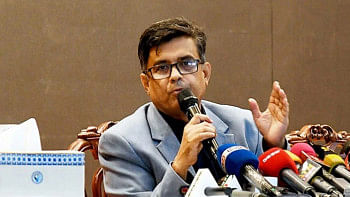Sustainable agriculture crucial for food security: experts

Sustainable agriculture has become an urgent necessity for ensuring food security, protecting the environment, safeguarding the well-being of farmers in Bangladesh, and increasing exports of agricultural products, according to experts and policymakers.
"Sustainable agriculture is not just about increasing productivity – it is about ensuring environmental balance, soil fertility, and climate resilience," said Abu Noman Faruq Ahmmed, a professor of Plant Pathology at the Sher-e-Bangla Agricultural University.
He made the comment while presenting a paper during a focus group discussion organised by Business Initiative Leading Development (BUILD).
Faruq stressed the importance of integrating stewardship principles into national pesticide policies to enhance sustainability.
"To ensure sustainable agriculture, it is necessary to raise awareness among farmers and ensure best practices in pesticide use," he remarked.
All agricultural inputs – including fertilisers and pesticides – should be used at justifiable levels, he added.
The discussion, held at BUILD's conference room in Dhaka, centred on revising the Pesticide Regulations 2024 and improving stewardship initiatives – programmes that aim to improve how resources are managed and used – to minimise the environmental and health risks associated with chemical pesticides.
Participants highlighted the need for robust regulatory mechanisms, including the use of government-recognised, accredited laboratories and improved testing facilities to ensure quality assurance at all levels.
Shafiqul Alam, press secretary to the chief advisor, attended as chief guest, while Rashedul Islam, a Bangladesh Sangbad Sangstha journalist, moderated the event.
Alam said the interim government is emphasising agricultural improvement to ensure food security. "In the coming years, food security may become a big issue. So, the country needs to scale up production in line with sustainable practices," he added.
Ferdous Ara Begum, chief executive officer at BUILD, chaired the discussion and reiterated the need for collaboration between government bodies and private sector stakeholders to streamline regulatory processes and promote sustainable agricultural policies.
She emphasised that improper pesticide application and lack of quality control pose serious threats to food safety and biodiversity.
By incorporating stewardship principles, Bangladesh can reduce environmental hazards, improve soil health, and align with global sustainability goals, including the United Nations' Sustainable Development Goals (SDGs), said Mohammed Shahidul Islam, director of corporate affairs management, regulatory affairs, and corporate sustainability at Syngenta Bangladesh Limited.
With Bangladesh's agriculture sector facing growing challenges due to climate change and unsustainable farming practices, he believes that stewardship-based reforms can ensure a more resilient and productive agricultural future.

 For all latest news, follow The Daily Star's Google News channel.
For all latest news, follow The Daily Star's Google News channel. 



Comments